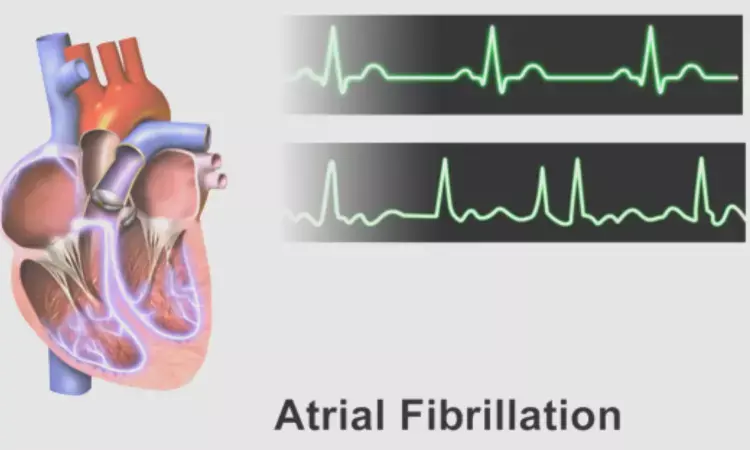- Home
- Medical news & Guidelines
- Anesthesiology
- Cardiology and CTVS
- Critical Care
- Dentistry
- Dermatology
- Diabetes and Endocrinology
- ENT
- Gastroenterology
- Medicine
- Nephrology
- Neurology
- Obstretics-Gynaecology
- Oncology
- Ophthalmology
- Orthopaedics
- Pediatrics-Neonatology
- Psychiatry
- Pulmonology
- Radiology
- Surgery
- Urology
- Laboratory Medicine
- Diet
- Nursing
- Paramedical
- Physiotherapy
- Health news
- Fact Check
- Bone Health Fact Check
- Brain Health Fact Check
- Cancer Related Fact Check
- Child Care Fact Check
- Dental and oral health fact check
- Diabetes and metabolic health fact check
- Diet and Nutrition Fact Check
- Eye and ENT Care Fact Check
- Fitness fact check
- Gut health fact check
- Heart health fact check
- Kidney health fact check
- Medical education fact check
- Men's health fact check
- Respiratory fact check
- Skin and hair care fact check
- Vaccine and Immunization fact check
- Women's health fact check
- AYUSH
- State News
- Andaman and Nicobar Islands
- Andhra Pradesh
- Arunachal Pradesh
- Assam
- Bihar
- Chandigarh
- Chattisgarh
- Dadra and Nagar Haveli
- Daman and Diu
- Delhi
- Goa
- Gujarat
- Haryana
- Himachal Pradesh
- Jammu & Kashmir
- Jharkhand
- Karnataka
- Kerala
- Ladakh
- Lakshadweep
- Madhya Pradesh
- Maharashtra
- Manipur
- Meghalaya
- Mizoram
- Nagaland
- Odisha
- Puducherry
- Punjab
- Rajasthan
- Sikkim
- Tamil Nadu
- Telangana
- Tripura
- Uttar Pradesh
- Uttrakhand
- West Bengal
- Medical Education
- Industry
Initial cryoballoon ablation better than antiarrhythmic drugs for lowering risk of AF progression

Canada: Initial treatment of atrial fibrillation (AF) with catheter cryoballoon ablation compared to the initial use of antiarrhythmic drugs is associated with a lower risk of persistent atrial fibrillation or recurrent atrial tachyarrhythmia at three years, a recent study has shown.
According to the results from the PROGRESSIVE-AF study, produced in the New England Journal of Medicine, initial treatment of paroxysmal AF with cryoballoon ablation lowered the incidence of AF progression by 75% at three years versus antiarrhythmic drugs. The findings were also presented at the 2022 Scientific Sessions of the American Heart Association.
Atrial fibrillation is a progressive, chronic disorder, and persistent atrial fibrillation forms are associated with increased risks of heart failure and thromboembolism. Catheter ablation as initial treatment may modify the pathogenic mechanism of AF and change the progression to persistent atrial fibrillation.
Jason G. Andrade, the Centre for Cardiovascular Innovation, Vancouver, BC, Canada, and colleagues reported the 3-year follow-up results of patients with paroxysmal, untreated atrial fibrillation. The patients (n=303) were the enrollees of a trial in which they were randomly allocated to undergo initial rhythm-control treatment with cryoballoon ablation (n=154) or to receive antiarrhythmic drug therapy (n=149).
Implantable loop recorders were placed at the time of trial entry in all the patients and were evaluated by downloading daily recordings and in-person visits every six months. The researchers then collected data on the first episode of persistent atrial fibrillation; lasting for ≥7 days or lasting 48 hours to 7 days but needing cardioversion for termination, recurrent atrial tachyarrhythmia; defined as flutter, atrial fibrillation, or tachycardia lasting ≥30 seconds, the burden of atria fibrillation calculated as the percentage of time in AF, health care utilization, safety, and quality-of-life metrics.
The study demonstrated the following findings:
- Over 36 months of follow-up, in the ablation group, 1.9% of patients had an episode of persistent atrial fibrillation, compared with 7.4% of patients in the antiarrhythmic drug group (hazard ratio, 0.25).
- Recurrent atrial tachyarrhythmia occurred in 56.5% of patients in the ablation group and 77.2% in the antiarrhythmic drug group (hazard ratio, 0.51).
- The median percentage of time in atrial fibrillation (burden of AF) was 0.00% in the ablation group and 0.24% in the antiarrhythmic drug group.
- At three years, 5.2% of patients in the ablation group and 16.8% of patients in the antiarrhythmic drug group had been hospitalized (relative risk, 0.31).
- Serious adverse events occurred in 4.5% of patients in the ablation group and 10.1% in the antiarrhythmic drug group.
"Initial treatment of atrial fibrillation with cryoballoon ablation is tied to a lower incidence of recurrent atrial tachyarrhythmia or persistent atrial fibrillation over a follow-up of 3 years compared to the initial use of antiarrhythmic drugs," the researchers wrote.
Reference:
Andrade JG, et al. LBS.08. Treating atrial and supraventricular arrhythmias Presented at American Heart Association Scientific Sessions; Nov. 5-7, 2022; Chicago (hybrid meeting).
Dr Kamal Kant Kohli-MBBS, DTCD- a chest specialist with more than 30 years of practice and a flair for writing clinical articles, Dr Kamal Kant Kohli joined Medical Dialogues as a Chief Editor of Medical News. Besides writing articles, as an editor, he proofreads and verifies all the medical content published on Medical Dialogues including those coming from journals, studies,medical conferences,guidelines etc. Email: drkohli@medicaldialogues.in. Contact no. 011-43720751


